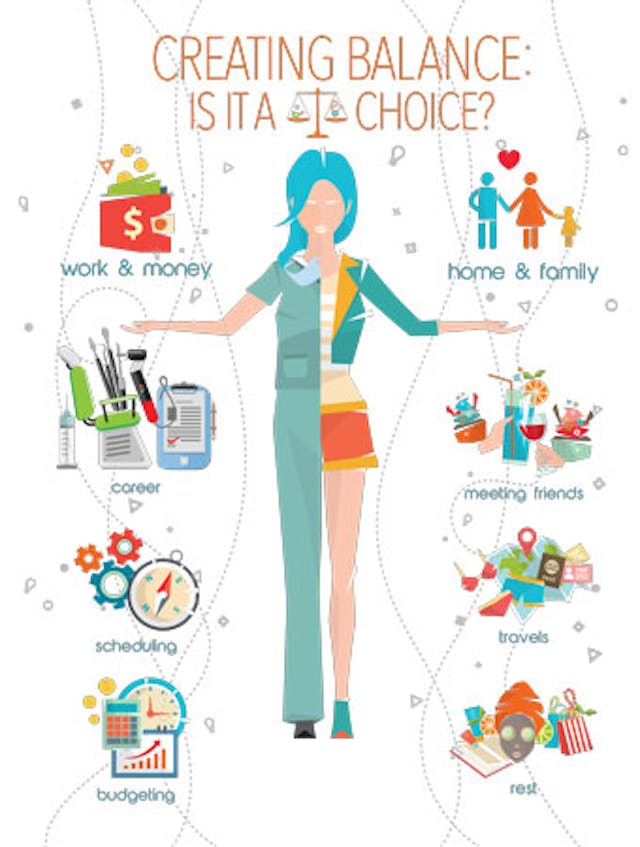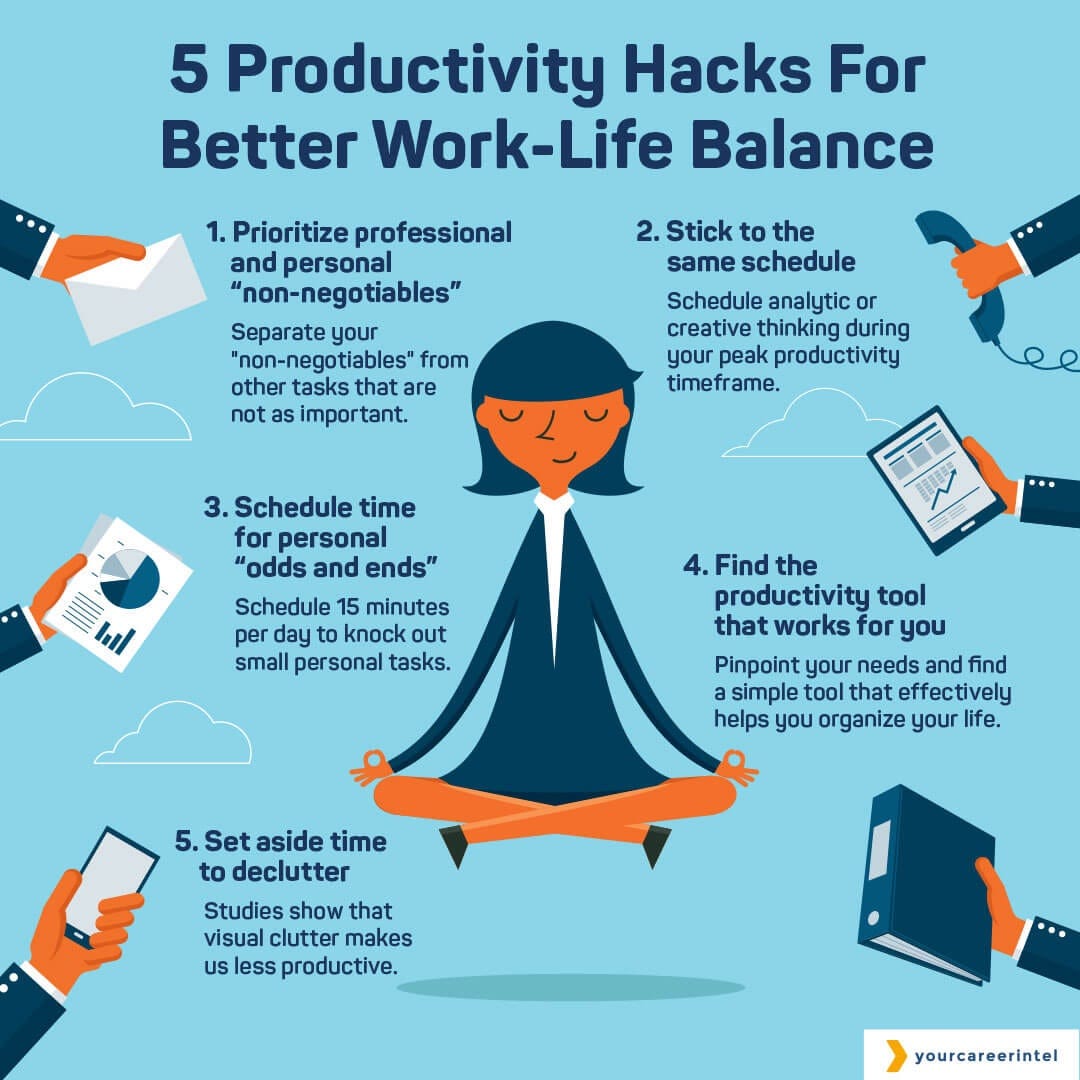Last Updated on January 14, 2026
Balancing work and personal life can feel like walking a tightrope. It’s easy to feel overwhelmed as you juggle deadlines, meetings, family time, and personal interests.
Have you ever found yourself wishing for a magic formula to make it all work? You are not alone. Many people just like you struggle with this daily challenge. But here’s the good news: there are practical strategies you can adopt to create harmony between your work commitments and personal life.
Imagine feeling more in control, less stressed, and enjoying both your career and your downtime to the fullest. Intrigued? Let’s explore how you can achieve this balance and reclaim your time and peace of mind.

Credit: medium.com
Setting Priorities
Setting priorities helps balance work and personal life. It guides focus on what truly matters. Priorities shape daily actions and decisions. Clear priorities reduce stress and improve productivity.
Identifying Core Values
Core values reflect what is most important in life. Knowing these values helps decide where to spend time. Values might include family, health, career, or learning. Write down your top values to keep them clear. Use these values to guide daily choices.
Creating Realistic Goals
Goals give direction and purpose to your priorities. Set goals that match your core values. Make goals specific and achievable within your time. Break large goals into smaller, manageable tasks. Track progress regularly to stay motivated and adjust plans.
Managing Time Effectively
Time management ensures you meet both work and personal needs. Plan your day using a simple schedule or list. Allocate time for work, family, and personal rest. Avoid multitasking to improve focus and quality. Review your time use to find and fix wasted moments.
Creating Healthy Boundaries
Creating healthy boundaries is essential for maintaining balance between work and personal life. Without clear limits, work can easily spill over into your personal time, leading to stress and burnout. Setting boundaries helps you protect your time, energy, and well-being, allowing you to be fully present both at work and at home.
Separating Work From Home
Designate a specific area for work, even if you work remotely. This physical separation helps your brain switch between “work mode” and “personal mode.”
When your workday ends, close your laptop and step away from your workspace. This simple action signals that work is done and personal time begins.
Ask yourself: Are you mixing work tasks with family time or leisure? If yes, try to create clear time blocks for each to avoid overlap.
Saying No Without Guilt
It’s okay to refuse extra work or social invitations if they interfere with your personal time. Saying no doesn’t mean you’re not a team player or friend; it means you’re respecting your limits.
Practice polite but firm ways to decline, such as: “I appreciate the offer, but I need to focus on my current tasks.”
Remember, every time you say yes to something, you’re saying no to something else—often your own rest or happiness.
Using Technology Wisely
Turn off non-essential notifications after work hours to avoid constant distractions. This small change can help you stay present during family dinners or personal activities.
Set specific times to check emails or messages instead of responding immediately. Batch-processing communication reduces stress and keeps you focused on what matters.
Consider apps that limit screen time or block work-related apps during your off-hours. How would your evenings change if your phone didn’t pull you back into work?
Boosting Wellbeing
Boosting your wellbeing is essential to finding harmony between work and personal life. When you prioritize your mental, emotional, and physical health, you naturally perform better in both areas. Small changes can make a big difference in how balanced and fulfilled you feel each day.
Incorporating Self-care
Self-care isn’t just about indulgence; it’s about meeting your basic needs to stay energized and focused. Try setting aside just 15 minutes daily for activities that recharge you—reading, stretching, or even a quick walk.
Think about your own routine. What simple habit could you add that makes you feel more centered? Sometimes, just drinking a glass of water and stepping outside can reset your mind.
Building Support Networks
You don’t have to do everything alone. Creating a network of supportive colleagues, friends, or family members gives you a reliable space to share challenges and celebrate wins.
Ask yourself: who in your life lifts you up when work feels overwhelming? Reach out regularly, even if it’s a quick message. Genuine connection fuels resilience and reduces stress.
Practicing Mindfulness Daily
Mindfulness helps you stay present and reduces the constant pull of distractions. Starting with just a few minutes of focused breathing can calm your mind and improve clarity.
Have you noticed how often your thoughts drift to unfinished tasks? Try pausing to observe your thoughts without judgment. This simple practice can transform how you handle pressure and make room for peaceful moments.

Credit: www.rdhmag.com

Credit: medium.com
Frequently Asked Questions
What Are Simple Ways To Balance Work And Personal Life?
Set clear work hours, take regular breaks, and spend time with family daily.
How Does Work-life Balance Improve Mental Health?
Balancing reduces stress and anxiety, helping you feel happier and more relaxed.
Can Time Management Help In Balancing Work And Life?
Yes, planning tasks and prioritizing important activities saves time and reduces pressure.
Why Is Setting Boundaries Important For Work-life Balance?
Boundaries prevent work from taking over personal time and help maintain healthy relationships.
How Can Employers Support Employees’ Work-life Balance?
Flexible schedules and remote work options help employees manage both work and life better.
Conclusion
Balancing work and personal life takes effort and clear choices. Set limits on work hours to enjoy free time fully. Take breaks often to refresh your mind and body. Prioritize tasks to reduce stress and avoid burnout. Spend quality time with family and friends to feel happy.
Remember, small changes lead to better balance and peace. Keep practicing these habits for a healthier, more joyful life.


